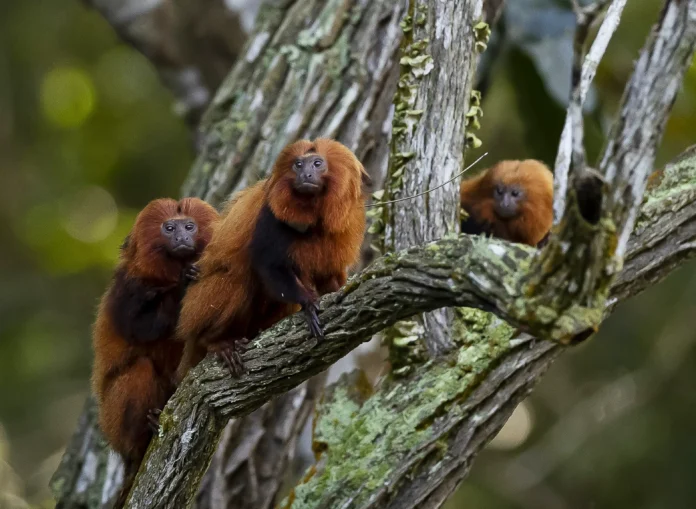Protecting our planet’s biodiversity has become an urgent priority in the face of increasing threats to our natural world. According to new research published in the Frontiers in Science journal, just protecting more than 1 percent of land as nature preserves could prevent most extinctions. This groundbreaking study proposes that by designating specific areas as “Conservative Imperatives,” we can effectively safeguard rare, threatened, and narrow-range endemic species and prevent further extinctions.
The study, conducted by a team of international researchers, highlights the critical importance of preserving biodiversity in the face of unprecedented environmental challenges. The team defines Conservative Imperatives as currently unprotected sites that are home to rare, threatened, and narrow-range endemic species. These areas are crucial for the survival of these species and play a significant role in maintaining the balance of our planet’s fragile ecosystems.
The research emphasizes that protecting just over 1 percent of land as nature preserves is a feasible and cost-effective solution to preventing extinctions. This percentage may seem small, but it has the potential to make a big impact in preserving our planet’s biodiversity. The study estimates that by protecting these Conservative Imperatives, we could safeguard at least 85 percent of all threatened species worldwide. This number is significant as it includes species that are currently not protected by any conservation efforts.
Furthermore, the research highlights that the areas identified as Conservative Imperatives are not only important for the survival of rare and threatened species but also for the preservation of unique habitats and ecosystems. These areas are often characterized by high levels of biodiversity and play a crucial role in maintaining the overall health of the environment.
The study also stresses the importance of acting swiftly to protect these areas. With the rapid pace of climate change and human activity, the window of opportunity to preserve these areas is rapidly closing. If we do not act now, we risk losing these critical habitats and the species that depend on them forever.
The good news is that there is still time to act. The research highlights that there are currently 3.3 million square kilometers of land that are suitable for designation as Conservative Imperatives. This is an area larger than India and presents a significant opportunity to protect and preserve our planet’s biodiversity.
The study provides a clear roadmap for conservation efforts, emphasizing that the focus should be on identifying and protecting key areas that are home to rare, threatened, and endemic species. This approach not only benefits these species but also has a positive impact on the surrounding environment and local communities.
The research also highlights the need for collaboration between governments, conservation organizations, and local communities to effectively protect these Conservative Imperatives. By working together, we can ensure that these areas are safeguarded for future generations.
Moreover, the study suggests that protecting these areas can also have economic benefits. By preserving these habitats and the unique species that call them home, we can attract tourists and generate revenue for local communities. This can incentivize governments and stakeholders to prioritize conservation efforts and protect these areas.
In conclusion, the research published in the Frontiers in Science journal is a wake-up call for all of us. It highlights the critical role that protecting just over 1 percent of land as nature preserves can play in preventing extinctions and preserving our planet’s biodiversity. It also provides a blueprint for conservation efforts, emphasizing the need to prioritize the protection of rare, threatened, and endemic species. It is up to all of us to take action and ensure that these Conservative Imperatives are preserved for future generations. Let us work together to protect our planet’s biodiversity and create a more sustainable future for all.

